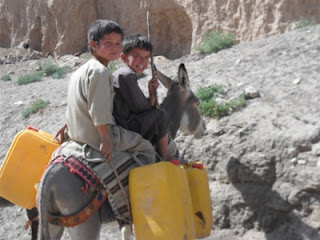To improve the women and children’s health by nutritious foods and to make the women somehow financially independent with a role in decision making, we are going to provide poor and handicapped women and widows in the villages with chickens.
Since all the village women are illitatrate, so we were training them in poultry production by showing and drawing pictures and working on models.

The picture below shows a model of chicken house that the trainer we hired from Balkh Agriculture Department was showing the women how to make it.

The picture below shows when the trainer was showing village women practically how to make a proper house for chickens.















